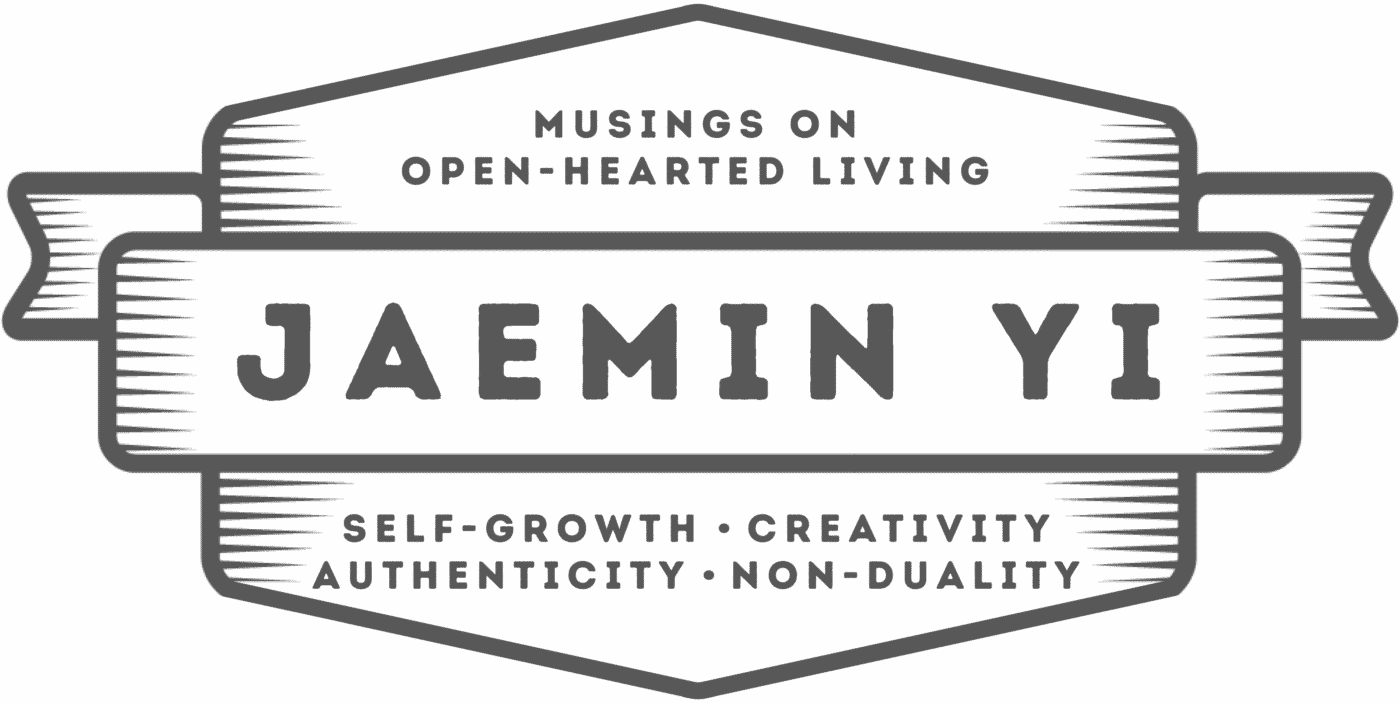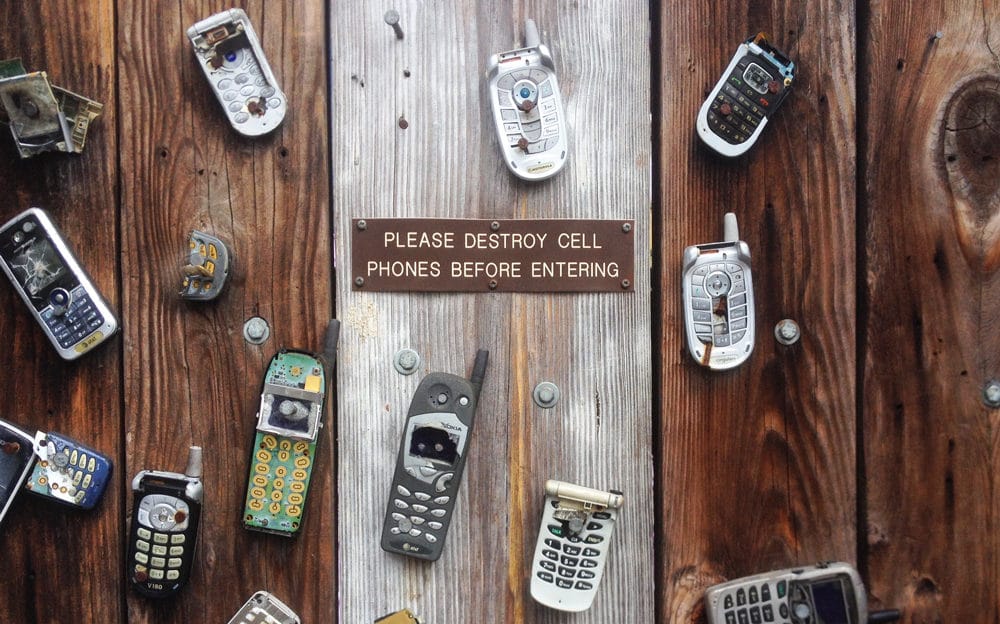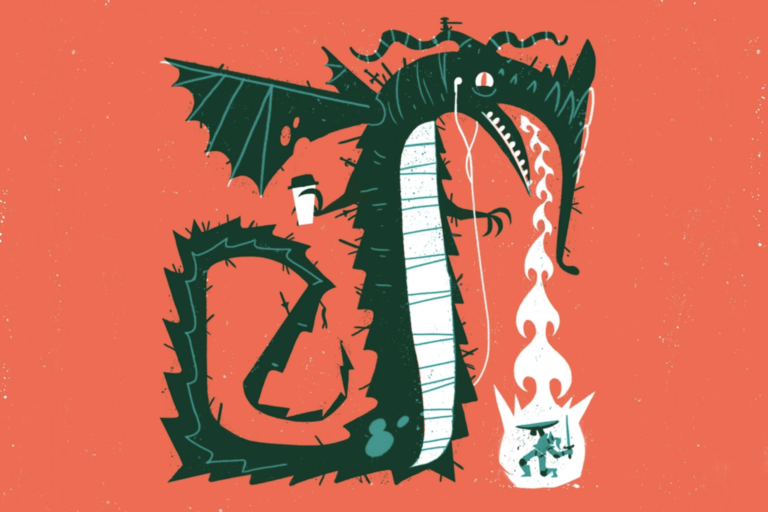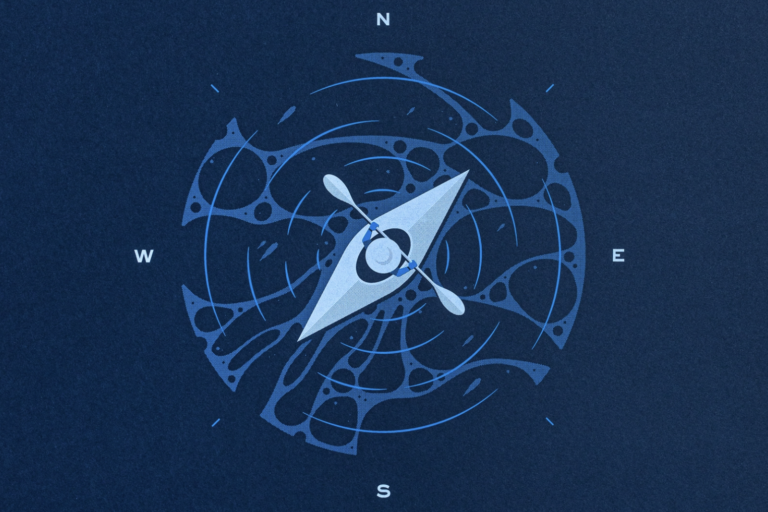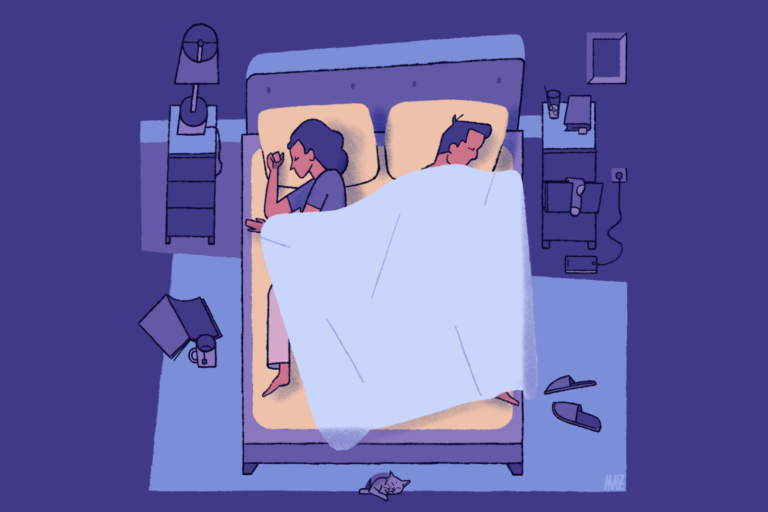A few months ago, I spent two weeks in the mountains of Spain on a spiritual retreat.
It was wonderful.
I spent most of my days completely content with whatever was happening – whether that was watching an ant crawl over my hand, eating in silence, or just simply breathing. Being. Existing.
Two weeks of utter peace and contentment
Which all got ripped away from me in just twenty minutes.
As soon as I entered the airport and turned on my phone, it was shocking how quickly my brain fell back into it’s old patterns.
Suddenly this present moment wasn’t good enough on its own. I needed to constantly fill it with new content: tweets, articles, podcasts, and on and on.
I felt like an addict. Who just couldn’t get his fix.
And it wasn’t until those 2 weeks of soberness that I realized how deep my problem was. How deep it was for ALL of us. But none of us ever notice because living like this was just the norm. The water we swam in.
Since then, I’ve been on a mission to keep my head above water. To greatly reduce my phone use, increase my sense of peace and well-being, and reclaim my sanity.
Here are a few things that helped.
Change your screen to grayscale
The first time I heard about this, I scoffed. But once I made the change to black & white, I can’t go back.
My screen is now a constant reminder to spend as little time with my phone as possible. And that my attention should be drawn to where there actually IS color (hint: the world around me).
I’m so used to the black & white display now that color mode (which you can turn on/off instantly) feels overly aggressive to me – like every app is screaming for my attention. No thank you.
Take 1-3 deep breaths every time you switch tasks
This has been a game changer for me.
My biggest problem with phone/internet use is that I’d get sucked into a never-ending flurry of activity and emails and articles, and before I knew it, 3 hours would pass and I’d feel like a zombie.
To counter that, every time I switch tasks (or apps or end a Pomodoro session), I close my eyes and take 1-3 deep, unhurried breaths.
The key is to really enjoy it. Luxuriate in it. Treat each breath like it’s a fucking spa day. Not only does it feel great, but it reels you out of the vortex of your mind and back into reality.
Doing that every 30 minutes is a must for me, if not more. I try to take those breaths every time I switch activities.
It helps me break out of the endless loop of mindlessly clicking from one thing to the next. Those 3 breaths allow me to come to my senses.
From there, I can intentionally – not compulsively – decide what to do next.
Get an App Assist
There’s one iPhone app I wholeheartedly recommend: Moment.
You can track your phone usage throughout the day (you might be shocked at your numbers), set daily time limits, and even take courses on reducing phone use.
Honestly, I don’t really use any of those features except for one, Tiny Reminders, which was worth upgrading to premium for ($3.99). I set mine to ping me for every 15 minutes of screen time. It helps catch me from going down the sinkhole of mindless browsing. And is another opportunity to practice my “3 deep breaths” whenever it pops up.
(I’ve heard QualityTime is a good Android alternative. And people also rave about Freedom – which allows you to block apps/websites for a set amount of time – but I never got into it.)
Boredom is Beautiful
A huge part of what drives our phone addiction is that we’re deathly afraid of the in-between moments. The moments of inactivity. Of boredom.
Learn to re-frame that.
Boredom isn’t a waste of time. As countless famous writers and inventors (and this WIRED article) have noted, boredom directly leads to creativity.
The practice of mindfulness and meditation will also re-wire your brain so that “empty” moments become surprisingly full. Of peace, calm, and rejuvenation.
Re-frame the negative space into positive. And you’ll start to crave it.
Single-tasking
We’re obsessed with multi-tasking. But it’s a guaranteed way to feel overwhelmed and be less productive.
Instead, single-task.
When you work on something, just do that ONE thing. With presence. Give it all your focus. And when it’s time to switch to something else, make a conscious break by taking 1-3 deep breaths in-between.
When you’re walking to your car, try JUST walking. Don’t pull out your phone. Don’t compulsively listen to a podcast. Just walk.
Learn to enjoy it. Focus on the sounds swirling around you. The feel of the pavement on your feet. Enjoy letting your thoughts wander.
Stop compulsively filling every second of your day with automatic activity. Give your brain a break. Be more intentional and less on autopilot with how you spend your time.
Embrace Your Shitty Phone
I used to always crave the newest, latest, best phone. Upgrading at least every 2 years.
But since I joined #teamgrayscale, I’ve started to embrace having a shittier phone.
Yes, my phone is slower and doesn’t have the sharpest HD screen. But maybe that’s not a bad thing. A shittier phone leads to less phone time.
And more time well spent.
Airplane Mode
These days, I generally put my phone in Airplane Mode (or at least on Do Not Disturb) when I go to bed, then keep it on for the first hour or two of the day.
Ah. It’s so nice to start your day without a flurry of texts and notifications.
And when Airplane Mode is off, I keep my phone facedown so notifications aren’t stealing my attention every few minutes.
Yes, this has made me a shittier texter, but a MUCH saner person. Well worth the trade-off, in my opinion.
Take Real Breaks
During breaks between my Pomodoro work sessions, I try not to check my phone.
Rapidly responding to text messages and scrolling through social media doesn’t allow me to actually rest – it just keeps my brain in a hyper-stimulated state. No wonder I’d feel so frazzled and burnt out by lunchtime!
Instead, I try to fill my break time with things that ACTUALLY wind me down and engage different parts of my brain. Whether that’s reading a few pages from a book, stepping outside and getting some fresh air, or hanging out with my housemates.
Make sure your breaks actually feel like one.
In Conclusion
Thanks to these above tips, my relationship with my phone feels much healthier.
As a result, I feel less cluttered, less overwhelmed, and more peaceful and sane.
I still love using my phone, but these days, the time I spend with my phone feels deliberate. Not compulsive. Not automatic.
And that’s what all of this really boils down to for me.
I want my life to feel less like I’m compulsively being pulled from one shiny object to the next. And more like I’m consciously putting my time and attention where I want it to go.
On what really matters to me.
Moment to moment.
